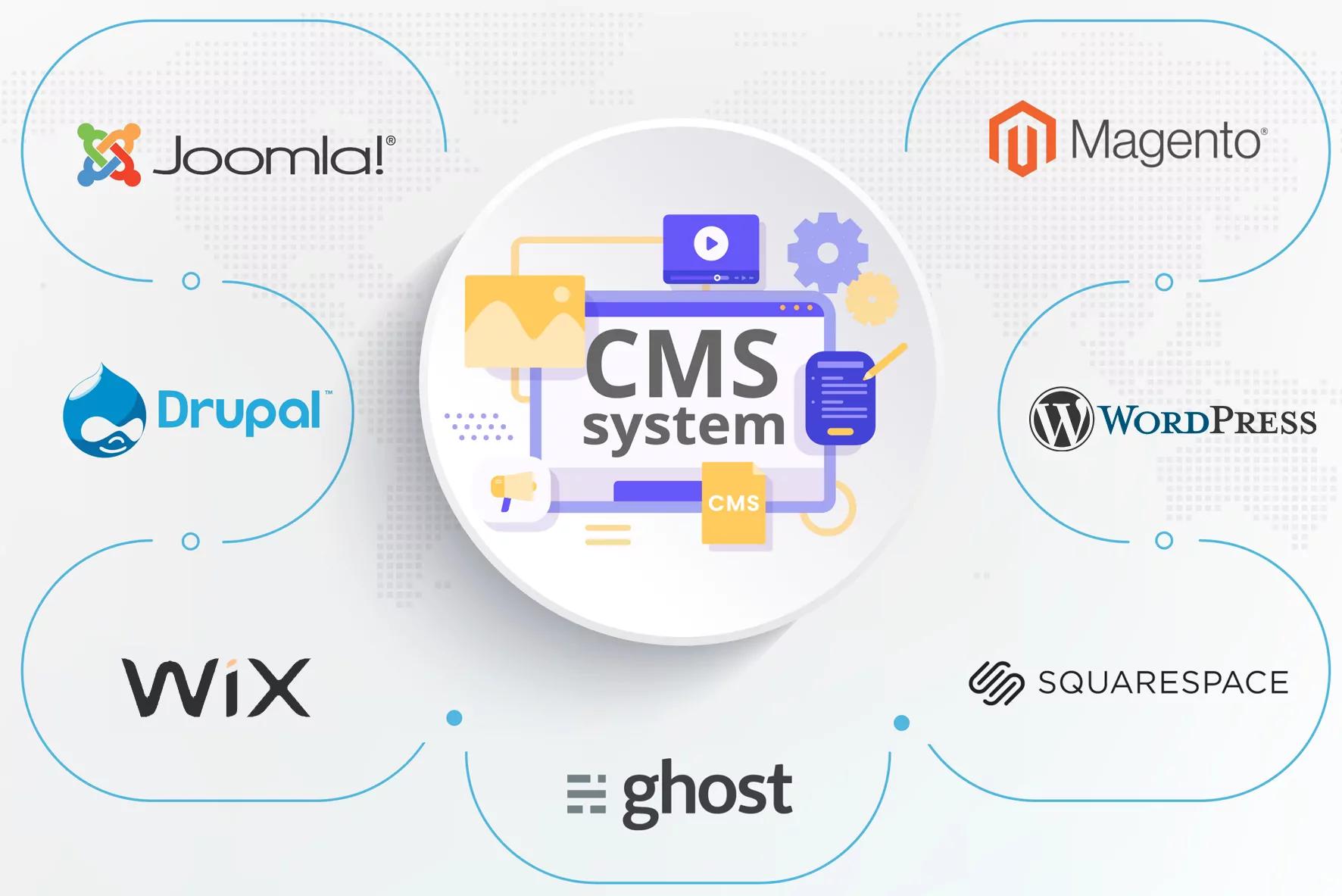[zoomsounds id=”what-is-a-cms-content-management-system”]
What is a content management system?
A content management system (CMS) is an application that helps you create and manage a website through a human-friendly interface instead of having to work directly with code.
During the rest of this post, we will delve into the question of “what is a content management system” in more detail and share some examples of the most popular content management systems.
More details on what is a content management system
When you think of running a website, you might have visions of geeky programmers writing code. And yes, the basis of every website is the code.
However, with a content management system, you can ignore the code and focus on the more fun parts of running a website, like creating content.
So how does it work? While things obviously differ depending on which content management system you choose, you’ll usually get some sort of dashboard where you can manage all the important aspects of your site.

For example, let’s say you want to add a new blog post to your content management system. All you need to do is write your blog post in your content management system’s text editor:
Your chosen CMS will then take care of putting together all the underlying code so that visitors from all over the world can read your blog post.
Now that you can answer the question of what is a content management system, let’s look at some examples of the most popular content management systems for creating a website.
Seven examples of content management systems (CMS)
From open source projects to hosted website builders, all of these content management systems can help you build a website.
1.WordPress
WordPress is by far the most popular content management system.
There are many reasons why WordPress is so popular. It is free to download and use. It is also easy to learn, flexible and search engine friendly. Plus, thousands of themes and plugins make it one of the most customizable platforms.

Furthermore, WordPress is easy to use for beginners, while allowing developers to play around with the code. Beginners can start at a basic level and build skills as they go. It is suitable for almost all types of websites. If you ever run into any difficulties with WordPress, you’ll be glad of the strong community that will help you troubleshoot.
2.Joomla
After WordPress, Joomla is the second most popular CMS. It is a free to use CMS that has an impressive set of built-in features and supports over 60 languages. It is a good choice for any website that needs comprehensive content management, for example educational institutions or complex websites like social media.
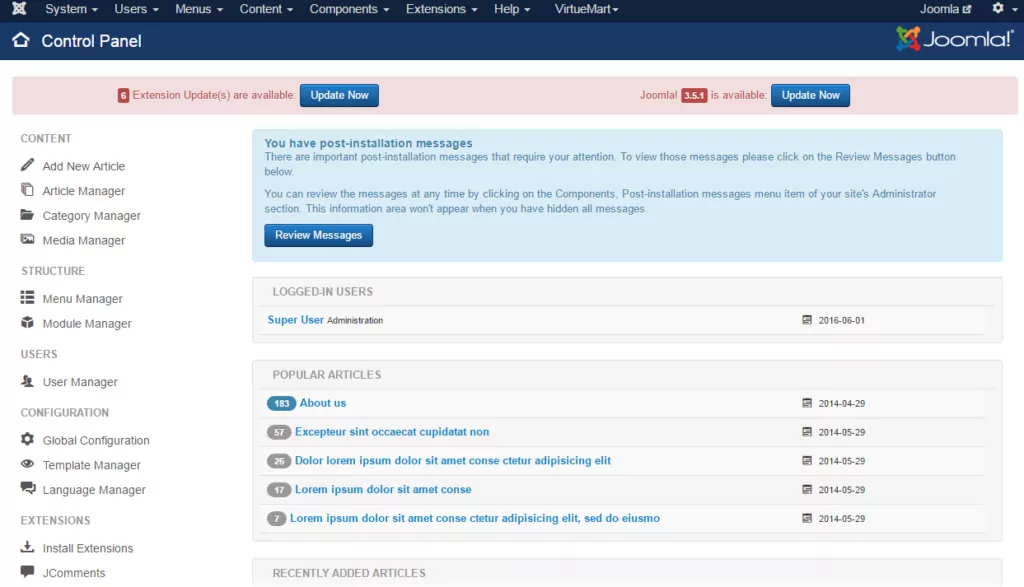
Various front-end and back-end templates are available to help you build a strong foundation. What sets Joomla apart are the extensive user groups and user management options, and many built-in features like banner and search management. You will also be able to collect and manage user consent.
Joomla is developer friendly. At the same time, it offers a user-friendly interface.
3. Drupal
If you ask techies what a content management system is, they will most likely cite Drupal as an example. That’s because it’s the only CMS that probably requires more technical skills.
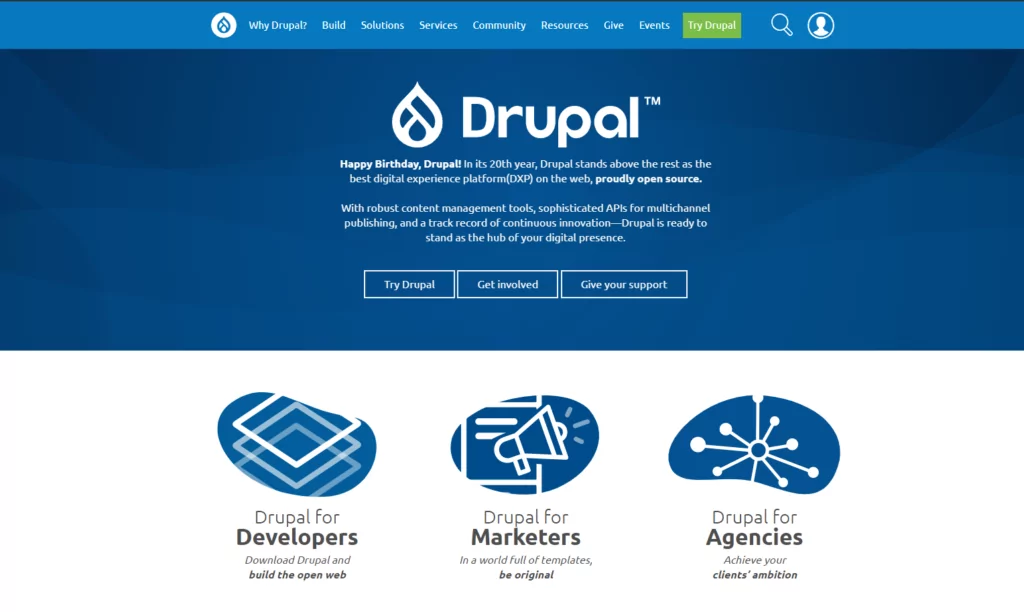
Drupal is also free, although you will need your own hosting. From an advanced administration panel, it helps to fully control the presentation of the content, as well as the management of users and permissions. Out of the box, it charges fast, is secure, and supports over 70 languages. Out-of-the-box solutions for different market segments, such as tourism or e-commerce, make it easy for users to create websites.
While beginners are better off skipping this CMS, developers should have no problem building amazing websites.
4.Magento
If eCommerce is your sole focus, Magento offers a complete standalone solution. It comes in two versions: a free self-hosted community version and many premium services. What makes it attractive to large businesses is its top-notch speed, security, and scalability. Add multi-site support and it can be the perfect platform for any business that needs separate sections, such as chain stores.
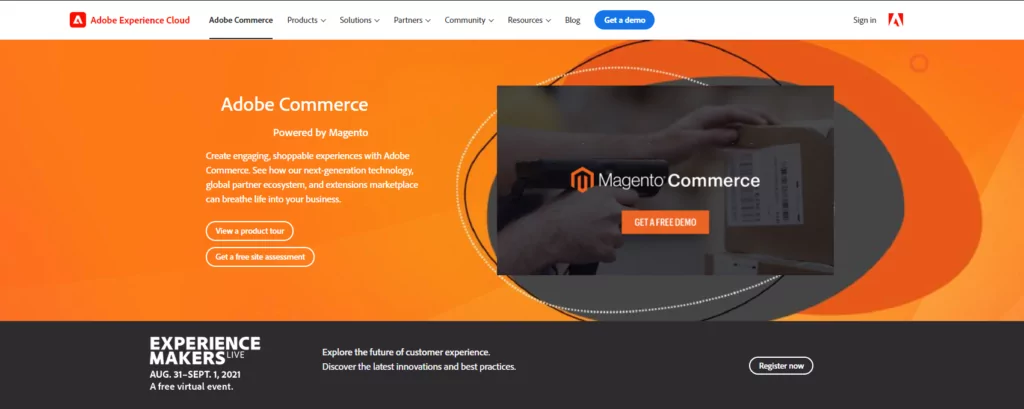
Fast checkout and easy integration with payment solutions like PayPal are sure to delight online stores. So will the intuitive admin interface, out-of-the-box analytics, themes, and extensions. However, unlike WooCommerce users, Magento users may require basic web development knowledge. But that’s not really a reason why enthusiastic students shouldn’t try it.

Professional Business Presentation
Do you need a redesign or a new website for your business?
Complete solution for small, medium or corporate business presentation. Great UX/UI designers, experienced programmers and high emphasis on testing. If you are looking for a professional partner for your business in the online world, contact us!
5.Square space
Squarespace is an out-of-the-box solution for creating almost any type of website. It’s so simple that anyone can create a website: physical stores, professionals, bloggers, artists. Also, it comes with social media integration. What’s the trick? Your website will come with a default subdomain and will be located on Squarespace’s servers, leaving you with little control. Custom domains are an additional cost.

Squarespace is a paid tool, with a free trial period. Although you can choose from a wide range of awesome templates and modules, you’re pretty much stuck with what you get. The templates themselves are optimized to fit all types of websites.
If all you need is an easy way to create a beautiful website, Squarespace is your choice. You won’t have to worry about technicalities or wonder what a content management system is. Instead, you can focus on content creation.
Unlike the tools above, Squarespace is a hosted website builder, which means you don’t need to purchase your own web hosting.
6.Wix
Wix works the same way as Squarespace. However, it differs from Squarespace in that it includes a free plan. It also offers a larger number of templates to get you started.
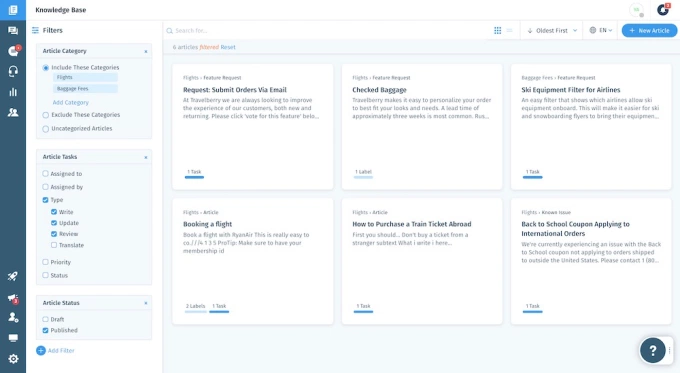
Wix’s step-by-step wizard combined with the hosting solution makes website creation fun. Wix Setup guides you through the template selection process, making sure you get a template that’s right for your website. It also integrates social networks and includes blogging features. However, you will be stuck with a Wix branded website, unless you are willing to pay to remove the branding.
7.Ghost
If all you’re looking for is a clean writing experience for bloggers and readers alike, you should give Ghost a try. It allows you to simply focus on writing your posts. It is user-centric, with a minimal UI, and uses Markdown in the Editor. Using FTP, you can upload your own themes and content.

You can choose between the free download self-hosted version and a premium version on the Ghost servers. Ghost also takes care of SEO and basic social sharing. However, you will be limited in your choice of hosts, as many shared hosting providers do not support the code used by Ghost.
Ghost is a great platform for publishing your blog or running a small online publication, but not much else.
CONCLUSION
For us the winning CMS is WordPress as it has the largest market share among its competitors so far, and it’s easy to see why.
Although WordPress was conceived as a blogging platform, it grew well beyond that niche. The platform is easy to use, and you can customize it in great detail using plugins and themes (of which you have thousands to choose from).
When it comes to content management, WordPress also provides a top-notch experience. Publishing new posts and pages is simple, and you have access to a powerful editor that allows you to format your content. In addition, the platform also supports user registration, has regular updates, and has a large and helpful community.

